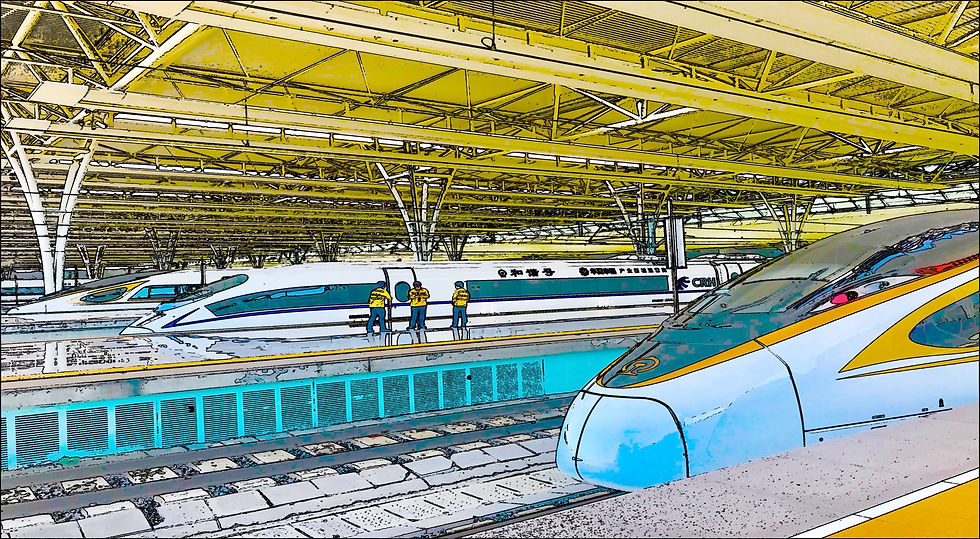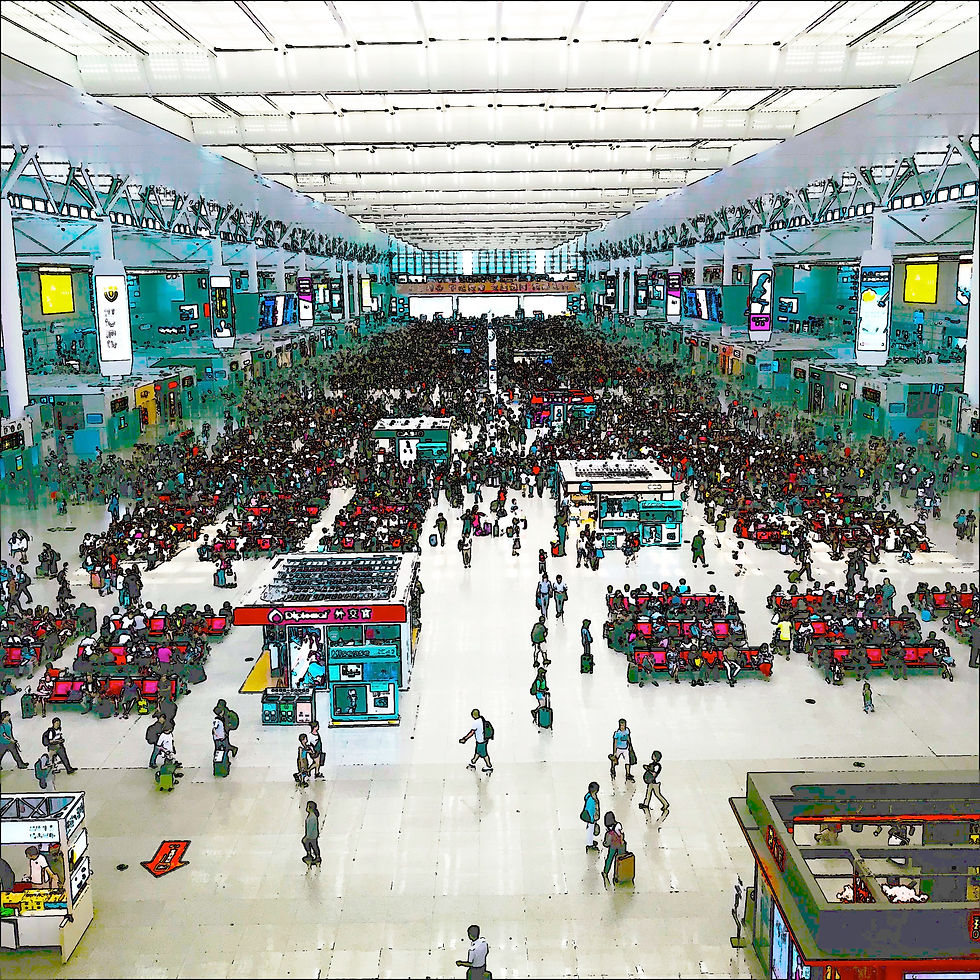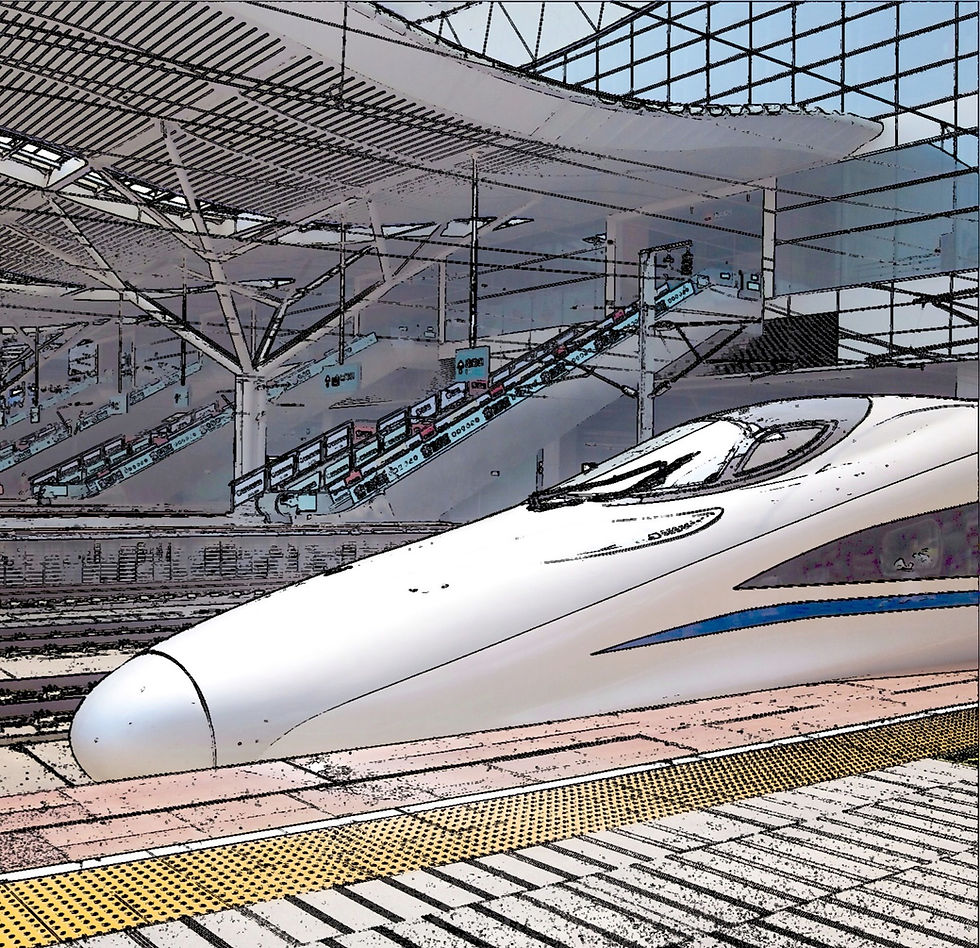Although China has come somewhat late to the high speed rail party, it has more than made up for lost ground. The high speed rail (高铁)network now extends from Hong Kong in the south right up to Qiqihar in the far northeast, and all the way west to Urumqi in the deserts of Xinjiang. The speed of the trains, punctuality, and generally pretty awesome features make them a viable alternative to flying long distances. This is particularly the case in China where you're never sure if your flight to Beijing will take off at 2:00pm as scheduled, or whether 2:00pm will commence a period of being stuck on the plane on the tarmac for 6 hours wondering if death would be preferable.

Making sure you get the bullet train
Bullet trains in China have a "G" in front of the train number. Other (slower) trains will have a different letter in front of the train number. So make sure your ticket has a "G" on it, otherwise you may be in for a pretty long journey, like the 30 hour Beijing->Guiyang train I once tricked my parents into taking with me; it was 15 years ago and mum is still fuming.
Ticketing
Unless you are going to China during one of the bigger national holidays (e.g., Spring Festival; National Day holidays; May day holidays) you should be OK to get a seat with relatively little worry. The Beijing-Shanghai route, for example, has trains running several times each hour so as long as you are semi-flexible with timing getting a seat on the day you want shouldn't be a problem.
Buying tickets within the PRC
If you are staying at a hotel, just ask the front desk to arrange the tickets for you. They charge a processing fee but it is around RMB20, i.e., definitely worth it. You will need to show them your passport.
The other option is to go to a rail ticket selling place, or the station itself, to purchase the tickets. This is very doable but can be quite stressful as there are usually long queues of people (and you might be in a queue of people who do things oldschool - i.e., who believe queues are for suckers and winners just push in at the front) and everyone wants to get in and out as quickly as possible. Fumbling around trying to explain where you want to go, when you want to go, and what type of train you want to take, while an irate construction worker tries to edge you out of your place in line because he wants to get on the next train to Jinan, may be enough to push you over the edge.
Buying tickets before arriving
This is probably possible, but I've never done it. The closest I've come is buying tickets for mainland PRC trains whilst I'm in Hong Kong. This is pretty easy - there is a China Travel Service at the Macau ferry terminal in Sheung Wan (on Hong Kong island) which can do this for you. You will need to book them several days before you leave as you need to come back to collect the tickets once they arrive. Alternatively, apparently you can book them at the new Kowloon West railway station (but I haven't verified this, so you're on your own).
There are also likely to be a number of companies which can purchase the tickets for you before you leave for China; I've never used these (and its probably not that necessary to pre-book that far in advance unless you are going to be there during a busy holiday period) but there are a number of suggestions if you search China train ticket bookings.

Business Class, First Class and Second Class
The bullet trains are divided into three classes: business class; first class; and second class.
Business class is the most expensive, and nicest. The seats are virtually identical to what you would get on business class with a good airline. Pricing is probably quite similar to; needless to say, I've never actually taken a business class train trip but when I do I'm going to insta the hell out of it.
First class is the next one down. The seat configuration has two seats, then the aisle, then two seats. The seats are big, there is a lot of room between you and the seat in front. There are also power outlets for each seat. You will be very comfortable here, believe me.
Second class is the lowest class. These are actually still pretty nice: the seating format is three seats, then the aisle, then two seats. The space is slightly more cramped than first class.

Luggage
There are overhead racks for luggage, but if your bags are too big they are likely to be required to go in the luggage compartment at the front or back of the carriage. An idea might be to pack your valuables in a smaller bag that you can put in the overhead racks above your seat, and then have your other stuff in a larger suitcase in the luggage compartment. China is a safe country, but in the unlikely event that your stuff is stolen it will be annoying but you can rest easy knowing that all they got was your dirty jocks and not your laptop.
Food
It is probably a good idea to bring some snacks on the train with you. In my uni days this basically involved surviving for 48 hours on a diet of cup-a-noodles as I trundled my way from somewhere close to the Kazakhstan border across to Beijing. These days, given the train is so much faster, you might be better just to buy a banana or something. All of the bullet train stations are huge and modern and filled with convenience stores so you can buy snacks just before you get on the train.
On the train, people regularly walk up and down with carts of food; these can be fruit, snacks, hot meal sets, drinks etc. They are actually pretty good but again you may feel slightly shy to hail one of these people down and then communicate what you want whilst the entire carriage stares at the spectacle. Then again, people are likely to take pity on you and will probably jump in to help, so it could be an icebreaker.

Bathrooms
The bullet train network is so new that the facilities are all pretty amazing. This includes the bathrooms on the trains which are totally fine and probably better than 99% of the public toilets in the rest of the country; and certainly better than the toilets on the trains where you live (unless you live in the Middle East and ride one of those solid gold Arabian express trains - I've never been to the Middle East but I assume that's a thing).
Comments